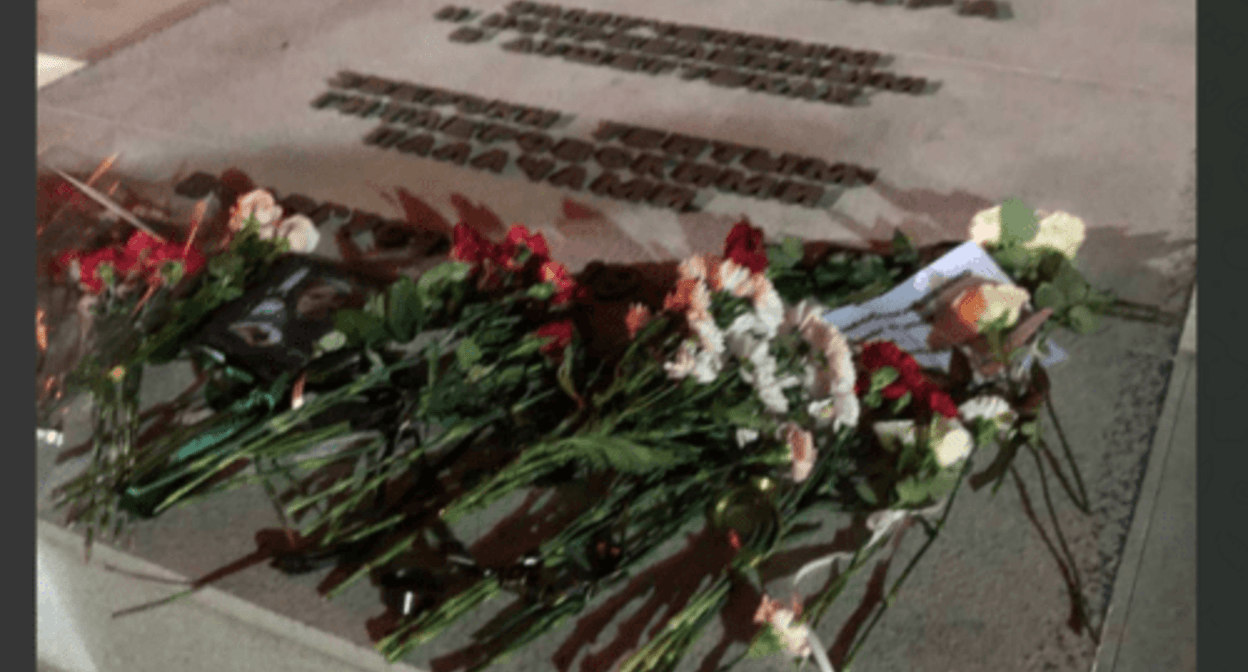Paskevich, Ivan Fyodorovich
Military man and statesman, active participant of wars with Persia and Turkey, Vicegerent of the Caucasus. Earl of Erivan.
Born May 8, 1782, in Poltava, in a family of a collegian advisor. During his adolescence, entered Page Corps together with his brother; however, the level of pages' education was not adequate at that time, at his parents' opinion, so Paskevich's education was handled to Ivan Martynov (later a famous linguistics scientist).
In October 1800, was promoted from pages to ancient of Leib Guard Preobrazhensky Regiment with an appointment as aide-de-camp to the Emperor. Enjoyed personal sympathies of Emperor Paul the First. After Paul's assassination and inauguration of Emperor Alexander the First, got into disfavor and only in 1805 was able to receive an appointment in the military service - to an army dislocated in the western border.
In 1806, I.F. Paskevich for the first time in his life took part in military action against Turkey, commanding small detachments and performing various tasks. For the bravery, was awarded the fourth-degree order of St. Prince Vladimir the Equiapostolic (orden Sv. Ravnoapostolnogo knyazya Vladimira 4-oy stepeni) with a bow and a golden dress sword endorsed "For Bravery".
In 1807, Paskevich was dispatched to Constantinople with a diplomatic mission, which he accomplished brilliantly, and was promoted in 1808 to captain maintaining the position of aide-de-camp.
Upon the renewal of military action against Turkey, Paskevich again participated in the battles. During an unsuccessful assault on Brailov, he was severely wounded in his head, which made him leave for Iasi for treatment. However, after the recuperation, he returned to the troops and was first appointed under ataman Platov's command and later to Zass's detachment staying beyond the Danube.
Soon, Paskevich received an order of transfer to general Markov's detachment. Together with this detachment, Paskevich participated in all its operations and was awarded the second-degree order of St. Anna (orden Sv. Anny 2-oy stepeni) for the battle of Tataritsa. In 1810, Paskevich was appointed the commander of Smolensk Musketeer Regiment located in Girsov, whose task were the operations in the seaside of the Black Sea. For participation in the assault on Bazardjik, where Paskevich commanded Vitebsk Infantry Regiment (was transferred their at his personal request), was awarded the third-degree order of St. Vladimir (orden Sv. Vladimira 3-ey stepeni); later, on July 7, 1810, was awarded the fourth-class Military order of St. Great Martyr George the Victorious (Voennyy orden sv. Velikomuchenika i Pobedonostsa Georgiya 4-go klassa) for the bravery performed during the siege of Varna. For participation in the battle of Batin on August 26, 1810, Paskevich was promoted to major general.
In 1810, Paskevich was appointed the chief of newly formed Orlovsky Regiment. Dedicating much effort to teaching the soldiers, ameliorating their situation, and elevating the discipline, he achieved excellent results. In January 1812, Paskevich was appointed the commander of 26th division.
During the Patriotic War of 1812, Paskevich's division participated in the battles of Saltanovka, Smolensk, Maloyaroslavets, and Vyazma. During the Borodino battle, it defended Rayevsky's hill battery. For this battle, Paskevich was awarded the first-degree order of St. Anna. During the battle of Krasnoye, Paskevich headed the bayonet attack of three infantry regiments who overthrew the columns of Neille, Marshal of France. For this battle, Paskevich was awarded the second-degree order of St. Prince Vladimir the Equiapostolic (orden Sv. Ravnoapostolnogo knyazya Vladimira 2-oy stepeni), and the Orlovsky Regiment was awarded the silver horns. Later, Paskevich commanded the 7th Corps substituting the ill general Rayevsky in Miloradovich's Regiment and conducted military actions in the territory of the Duchy of Warsaw.
Paskevich participated in the military actions near Dresden, as well as Leipzig on October 6, 1813. Here, he was promoted to lieutenant general on October 8.
Being appointed the commander of the Second Grenadier Division in 1814, Paskevich participated in the battles of Arsis-sur-Aube, near Paris; later, for the capture of Paris, was awarded the order of St. Prince Alexander Nevsky the Faithful (orden Sv. Blagovernogo knyazya Aleksandra Nevskogo).
After the events of December 14, 1825, in the Senate Square, Paskevich was appointed the member of the Supreme Secret Court on the Decembrists' case. In 1826, due to the beginning of the war with Persia, he received an order to leave to command the troops in the Caucasian war theater, which was at that time under Ermolov's command; it was supposed that some time later the Commander-in-Chief of the Caucasian Corps will be substituted, since the actions of the latter caused Emperor's displeasure. Such ambiguous situation constantly provoked conflicts between Paskevich and Ermolov, which resulted in the latter's recall from the military (March 12, 1827). Paskevich was appointed the Commander-in-Chief of the Caucasian Corps and the Vicegerent of the Caucasus. Paskevich's actions against Persia were successful, and the troops under his commandment won the battle of Elizavetpole, for which Paskevich was awarded the golden dress sword decorated with diamonds and endorsed For the Defeat of the Persian at Elizavetpole. For the capture of Erivani on October 5, 1827, Ivan Fyodorovich Paskevich was awarded the second-class Military order of St. Great Martyr George the Victorious (Voennyy orden sv. Velikomuchenika i Pobedonostsa Georgiya 2-go klassa) (October 29, 1827).
On February 10, 1828, Paskevich managed to achieve peace with Persia by signing Turkmanchay Peace Treaty according to which Russia received Erivani and Nakhichevan khanates. On March 15, 1828, Ivan Fyodorovich Paskevich was entitled Earl with the name of Erivan.
In 1828-1829, I.F. Paskevich actively participated in the war with Turkey. In June 1828, the troops under his command succeeded in taking Kars fortress by storm and in July captured the fortresses of Akhalkalaki, Khertvis, and Poti. Soon, Paskevich was appointed the chief of Shirvan Infantry Regiment and was awarded the order of St. Apostle Andrew the First Caller (?) (orden sv. apostola Andreya Pervozvannogo) for the capture of Akhaltsikh on August 16, 1828. Shirvan Regiment was given his name. In summer 1829, defeating the Turks, Paskevich's troops approached the capital of Anatolia, Erzerum, and captured it. For this success, Paskevich was awarded the first-class Military order of St. Great Martyr George the Victorious (Voennyy orden sv. Velikomuchenika i Pobedonostsa Georgiya 1-go klassa). On the day of signing the Adrianopole peaceful treaty, September 22, 1829, Ivan Fyodorovich Paskevich was promoted to Field Marshal General.
In summer 1831, Paskevich was recalled from the Caucasus and dispatched to Poland for suppression of the uprising, which started there in the fall of 1830. Successful military action ending in the takeover of Warsaw, brought Paskevich the title of Grand Duke of Warsaw and the position of the Vicegerent of the Kingdom of Poland with special authority.
In 1849, I.F. Paskevich was appointed the head of the Russian army directed to Hungary for the suppression of the rebellion against the Austrian rule.
In April 1854, during the Crimean War, Paskevich was against dispatched to the theatre of military action. He headed the commandment of the Russian army fighting with Turks on the Danube. Here, however, he was not for long, since he was contused on May 27, 1854, during the siege of Silistria, and, delegating the army commandment to Gorchakov, departed for Poland for treatment.
Ivan Fyodorovich Paskevich deceased on January 20, 1856, in Warsaw.







![Tumso Abdurakhmanov. Screenshot from video posted by Abu-Saddam Shishani [LIVE] http://www.youtube.com/watch?v=mIR3s7AB0Uw Tumso Abdurakhmanov. Screenshot from video posted by Abu-Saddam Shishani [LIVE] http://www.youtube.com/watch?v=mIR3s7AB0Uw](/system/uploads/article_image/image/0001/18460/main_image_Tumso.jpg)